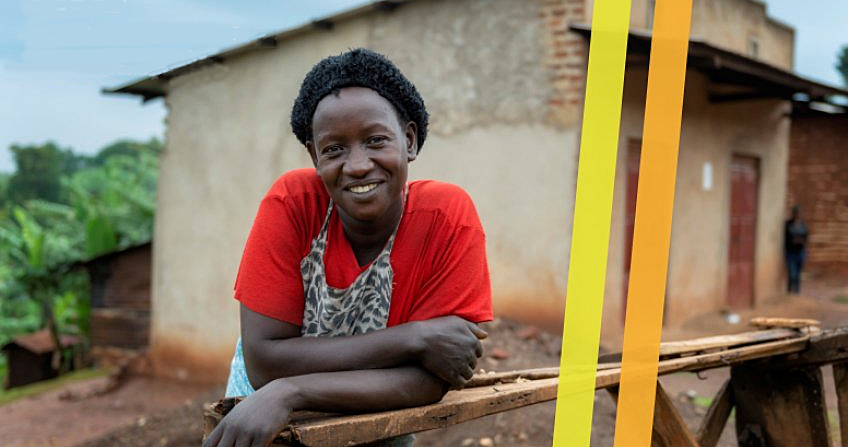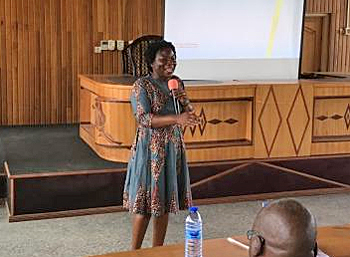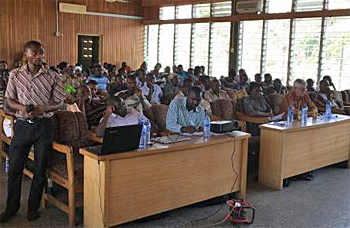IRC supports full WASH coverage start-up initiative in Kenyasi, Ghana
 Dutch-based non-profit organisation IRC Wash, together with Safe Water Network and Asutifi North District Assembly, launched the District Based Full WASH Coverage start-up initiative in Kenyasi, Ghana.
Dutch-based non-profit organisation IRC Wash, together with Safe Water Network and Asutifi North District Assembly, launched the District Based Full WASH Coverage start-up initiative in Kenyasi, Ghana.
This initiative will support the design of a master plan for achieving universal coverage, to create a blueprint for districts to reach full coverage of water supply and sanitation facilities within the next 15 years.
The initiative was quick started at an inception workshop held on March 16 and is supported by the Conrad N. Hilton Foundation.
This has been reported by Jeremiah Atengdem, water expert at IRC Ghana.
 Director of IRC Ghana, Vida Duti, at the workshop.
Director of IRC Ghana, Vida Duti, at the workshop.
Full WASH coverage by 2025
Ghana is committed to the attainment of Sustainable Development Goal (SDG) 6 for ensuring sustainable management of water and sanitation services for all by 2030.
Consistent with this goal, the WASH sector in Ghana aspires to reach full coverage by 2025. Within the rural and small town sub-sector in Ghana, progress has been made in extending rural and small town coverage from 29 percent in the 1990s to 65 percent in 2015 with very slow growth registered in sanitation coverage which stands at about 15 percent (in 2015).
Challenges ranging from lack of finances to poor sector coordination within the local decentralised system hamper progress and the achievement of set targets by 2025.
 On district level
On district level
Contributing to this target, the District Based Full WASH Coverage initiative wants to ensure every citizen of the district in the Asutifi North district has access to water and sanitation services.
The partners also hope to use this initiative to demonstrate that it is possible to achieve full coverage in sustainable rural water and sanitation services within a district. Positive results will be shared across Africa and the world at large for possible replication.
Economic transition
Asutifi North faces the typical challenge of rapid urbanisation and agglomeration due to economic pulls. It presents a growing local economy moving from subsistence agriculture to mining, commerce and services and small-scale process.
The transition in all respects presents opportunities and these must be nurtured, enhanced and facilitated to support the effective change and delivery of WASH.
Read the full blog post by Jeremiah Atengdem on the website of IRC Wash.
Read also on this website
● Patrick Moriarty gives TED talk on building water systems that deliver 24/7, 13 March 2017
● Hilton Foundation supports IRC to upgrade water services in Burkina-Faso, Uganda and Niger, 21 December 2016
● Stockholm World Water Week 2016: Implementation of SDG6 on water gets into gear, 30 August 2016
● Country: Ghana
More information
IRC Wash,
The Hague, the Netherlands
+31 70 304 4000
www.ircwash.org



